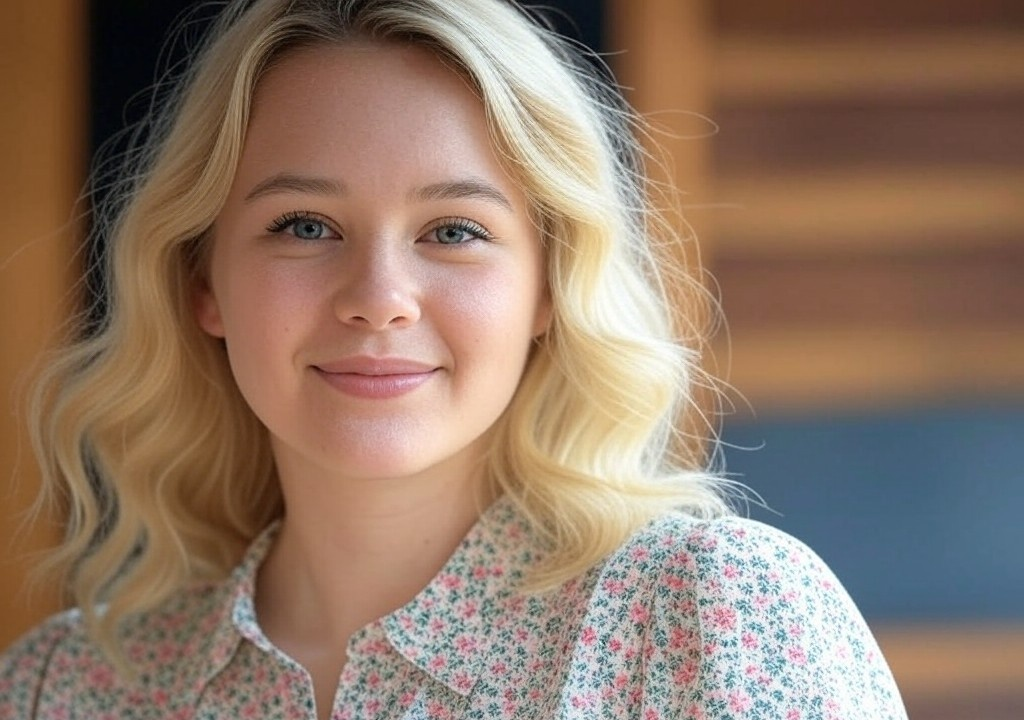The first time I fell in love with stories, I was nine years old, clutching a crinkled paper bag of kettle corn at a Saturday street festival in Nashville. My dad was on a makeshift stage, strumming a weathered Martin guitar, while my mom sang harmonies so sweet they could’ve sent Dolly herself reaching for a tissue. Between songs, my dad told stories about where the lyrics came from, spinning tales of heartbreak, hometown pride, and a guy named Earl who once faked his own death (to mixed reviews). The audience hung on every word. So did I.
That’s when I first realized that stories aren’t just words—they’re connections. They’re the thread tying us all together, letting us say, “Hey, I’ve felt that way too.” And from that moment on, I wasn’t just a listener; I was a creator. If my dad could turn Earl’s misadventures into pure magic, surely I could translate my own chaos into something meaningful.
Breaking Up with Perfection
But let’s skip ahead to the part where writing became, well, messy.
For a long time, I thought everything I wrote had to be polished right out of the gate—every sentence buttoned up, every metaphor Pulitzer-worthy. Honestly, it wasn’t writing; it was performance anxiety with a side of self-doubt. My inner editor was like that date who keeps interrupting your story to correct your grammar. (We’ve all been there, right? If you haven’t, I envy you. Marry them immediately.)
It took years to figure out what my dad must’ve always known on stage: perfection is boring. When I finally let go of the idea of perfect writing, my stories started flowing. The characters in my head stopped waiting for permission to speak. Suddenly, it was okay if my metaphors leaned more “Grand Ole Opry” than “Great American Novel.”
Take it from a recovering overthinker: If you wait for a perfect draft, you’ll never start. Writing, like relationships, is about showing up with all your flaws and quirks. (And let’s be real—is anything more attractive than authenticity?)
The Dating Connection: Stories as Courtship
Speaking of authenticity, writing isn’t all that different from dating. Hear me out: Both rely on storytelling to make a connection. Every time you text someone “just wondering how their day’s going” or nervously chirp out a pun on a first date, you’re inviting them into your world. You’re saying, “This is my story. Do you want to be part of it?”
I once went on a date where we spent three hours arguing (playfully, I swear) about who would win in a brawl: Dolly Parton or Cher. My stance? Dolly wins, hands down—she’s got the biceps from hauling hay and the ability to diplomatically shut you down with a smile. That exchange became its own kind of story, one that revealed our values, humor, and the fact that we’d probably make terrible trivia team partners.
I write for the same reason I date—to connect, to learn about people (and myself), and to create something better than a one-sided conversation. Stories are my way of extending a hand, whether I’m putting pen to paper or nervously texting “Hey so, what’s your stance on Dolly vs. Cher?”
What Songwriting Taught Me About Storytelling
Growing up in Nashville didn’t just influence my taste in music (though yes, I can two-step like it’s my birthright). It also taught me how to tell a story that sticks. Country songs masterfully boil life’s messiest feelings into three verses and a killer chorus. They can make you laugh, cry, or feel like you’ve just run into your ex at Kroger—often all at once.
Some of the best writing advice I ever got came from my dad: “Every song needs a hook, Savannah. Give people something they can’t forget.” I’ve carried that lesson into everything I write. Whether it’s a novel or an article like this, the question stays the same: What’s the hook? Why should anyone keep reading past the first line?
In other words, how does my story make you feel less alone? Because that’s really the secret sauce, isn’t it? A good story isn’t about showing off how clever you are; it’s about inviting people in. Like a dive bar jukebox at midnight, it should have a little something for everyone.
Falling in Love with Unfinished Stories
One of the best—and hardest—lessons I’ve learned as a writer is that not all stories need neat endings. Some are meant to trail off, leaving you with more questions than answers. Others grow and evolve, refusing to be pinned down. And then there are the ones that seem impossible to finish, like that novel draft that’s been gathering dust since pre-pandemic times. (Don’t judge—it’s a process.)
But here’s the thing: I’ve come to love those unfinished stories. They remind me that writing isn’t about crossing a finish line; it’s about showing up again and again, no matter how messy or uncertain it feels. It’s about putting your full heart into something, even if you don’t know where it’s headed.
Frankly, writing is a lot like relationships in that way. Sometimes, the magic is in the not knowing.
Here’s Why You Should Tell Your Story (Yes, You)
If you’re sitting there thinking, “That’s great, Savannah, but I’m not a writer,” I get it. But here’s the thing: You are. Everyone is. If you’ve shared an embarrassing childhood story over brunch, or stayed up late rewriting a text to your crush (we’ve all been there), you’ve got the makings of a storyteller.
So, here’s my challenge to you: Tell your story. Write it down, record a voice memo, or just share it with a friend who gets it. Don’t worry about whether it’s groundbreaking or worthy of its own Netflix miniseries (although, let’s be honest, mine’s already been titled Southern Seduction and Cinnamon Rolls).
Your story matters because it’s yours. The details don’t have to be earth-shattering—they just have to be honest. And who knows? Someone might hear your story and think, “I’ve felt that way too.” And isn’t that the point of all this—to connect, to understand, to keep reaching for something real?
The Encore: Keep Showing Up
So, here’s why I keep writing: Because the world is full of unfinished stories, messy drafts, and moments that don’t make sense until they’re told. And every time I sit down to write, I’m reminded of that little girl at the street festival, dazzled by the way words can turn strangers into confidants.
Whatever your story is, I hope you find a way to tell it—unedited, unpolished, and all the more beautiful for it. Keep showing up. Start messy. Trust that your voice matters. And if you ever need a cheerleader, well, you know where to find me.
Oh, and one last thing: Dolly would totally win.




















